#jacques monod
Quote
Every living being is also a fossil. Within it, all the way down to the microscopic structure of its proteins, it bears the traces if not the stigmata of its ancestry.
Jacques Monod, Chance and Necessity: Essay on the Natural Philosophy of Modern Biology
49 notes
·
View notes
Text
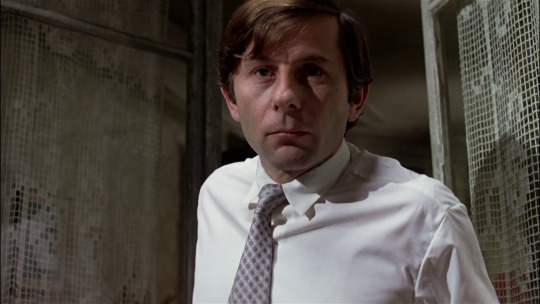
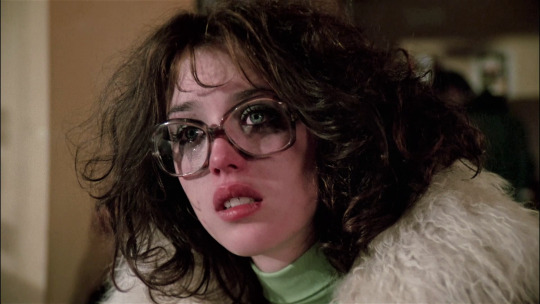



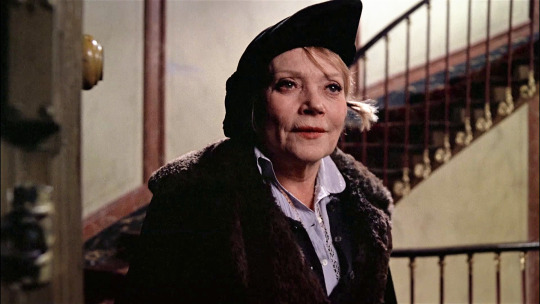
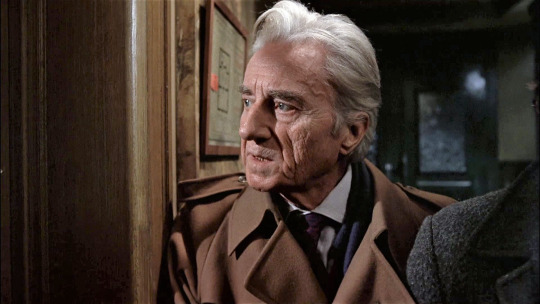



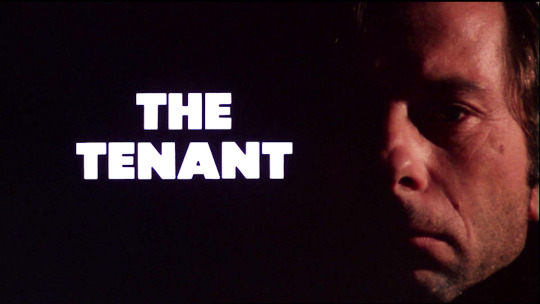
Film Review: "The Tenant" (1976)
#the tenant#roman polanski#roland topor#isabelle adjani#melvyn douglas#shelley winters#jo van fleet#lila kedrova#claude dauphin#jacques monod#romain bouteile#josiane bolosko#horror
11 notes
·
View notes
Text
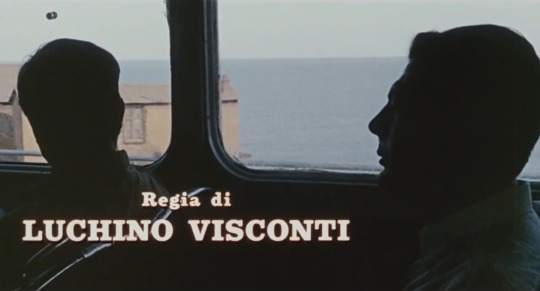
lo straniero (1967)
2 notes
·
View notes
Text
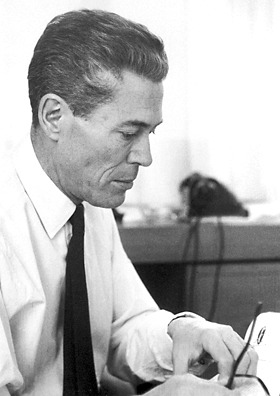
«Esto es quizás una utopía. Pero no es un sueño incoherente. Es una idea que se impone por la sola fuerza de su coherencia lógica. Es la conclusión a la que conduce necesariamente la búsqueda de la autenticidad. La antigua alianza está rota: el hombre sabe al fin que está solo en la inmensidad indiferente del Universo en donde ha emergido por azar. Igual que su destino, su deber no está escrito en ninguna parte. A él le toca escoger entre el Reino y las tinieblas».
Jacques Monod: El azar y la necesidad. Tusquets Editores, pág. 179. Barcelona, 1993.
TGO
@bocadosdefilosofia
@dies-irae-1
#jacques monod#monod#jacques-lucien monod#probabilidad cero#el azar y la necesidad#azar#necesidad#el reino y la obscuridad#el reino y la oscuridad#ética del conocimiento#biología#filosofía de la biología#filosofía natural#hombre#ser humano#azar y necesidad#utopía#universo#autenticidad#ética#deber#conocimiento científico#conocimiento#emergencia#destino#indiferencia#reino#tinieblas#teo gómez otero
3 notes
·
View notes
Text
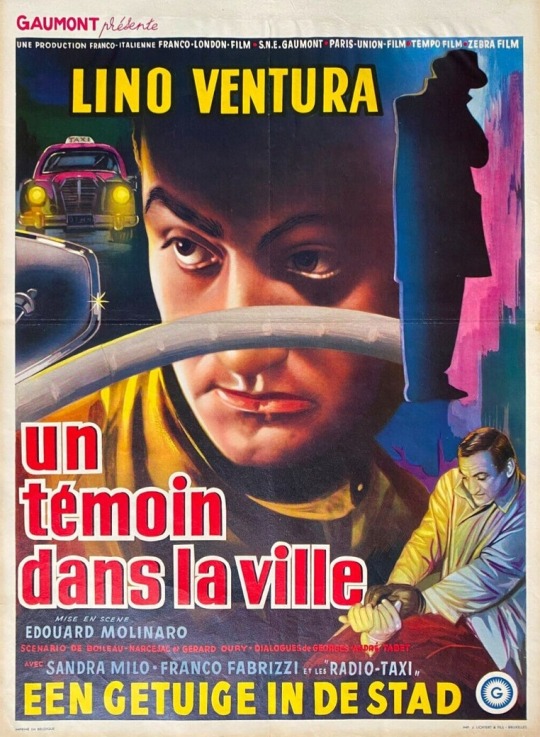
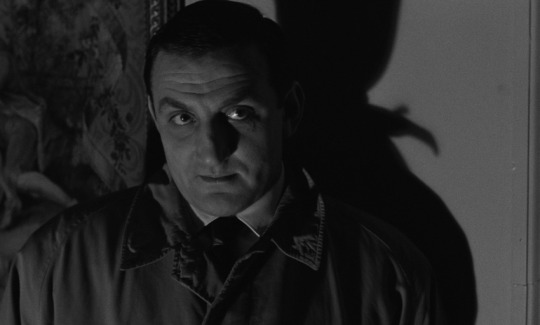
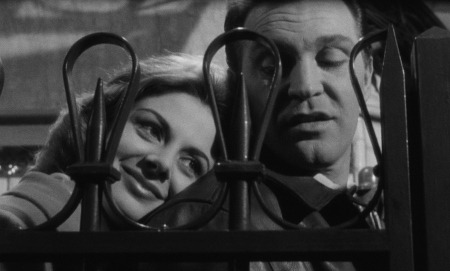
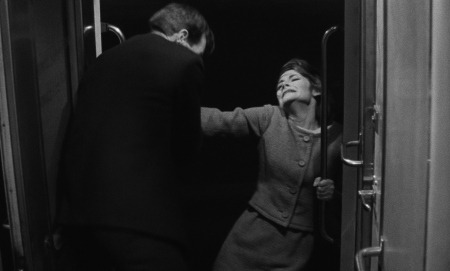
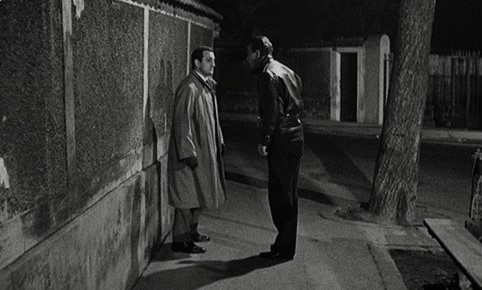
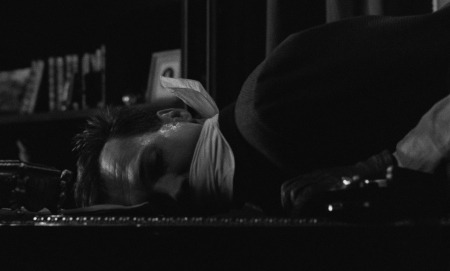
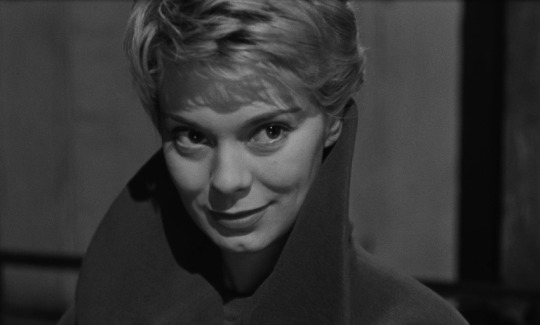
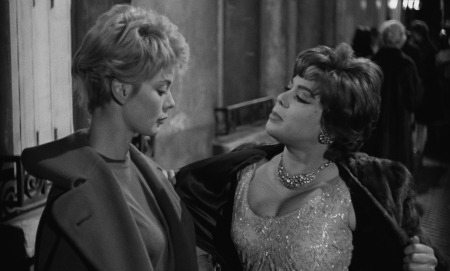
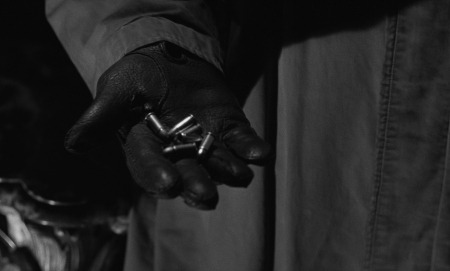
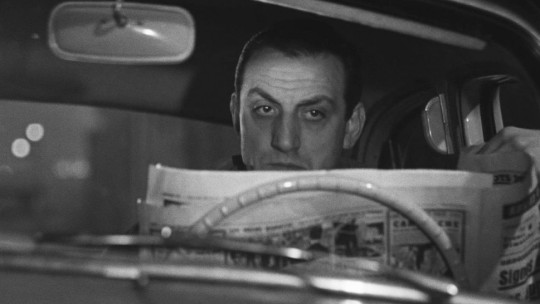
Un témoin dans la ville (Witness in the City, 1959)
"I'll yell. I'll yell for help. The neighbours will come."
"The rich don't have neighbours, Mr. Verdier. Just trees surrounding their homes."
#Un témoin dans la ville#witness in the city#french cinema#film noir#1959#édouard molinaro#pierre boileau#thomas narcejac#gérard oury#lino ventura#sandra milo#franco fabrizi#jacques berthier#ginette pigeon#françoise brion#robert dalban#micheline luccione#janine darcey#gérard darrieu#jacques monod#barney wilen#beautifully stripped down‚ jazzy noir; simple and brutal‚ as Lino Ventura's righteous murderer stalks the sole witness to his crime and#very gradually loses his humanity and the sympathy of the audience. it's all hard shadows and collateral damage‚ a nihilistic study of the#inescapable escalation of violence in the search for revenge. Ventura is fantastic: he had such a great face for cinema‚ a big blank canvas#just waiting to be painted with all the worries the world has to offer‚ here running the gamut from hard and pitiless to soft and frightene#he's the noir archetype‚ a thoroughly ordinary man caught up in an extraordinary situation and rapidly spiralling out of control#waltzing ever steadily towards a destruction of his own making. everyone's great here tho‚ and there's not an ounce of flab on this film#nor a single wasted shot. Molinaro works in some light among the dark‚ moments of life that stand in contrast to the moments of death#warmth against cold; unsentimental‚ from the brutal opening murder to the perfunctory bleakness of the finale#an indispensable noir full of detail and realism and life and character. highly recommended for p much anyone
0 notes
Text
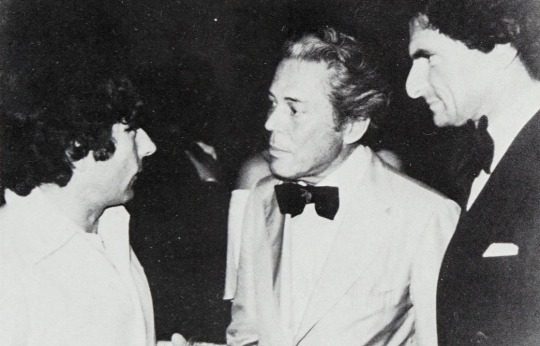
Roman Polanski, Jacques Monod, Jerzy Kosinski at The Cannes Film Festival 1976
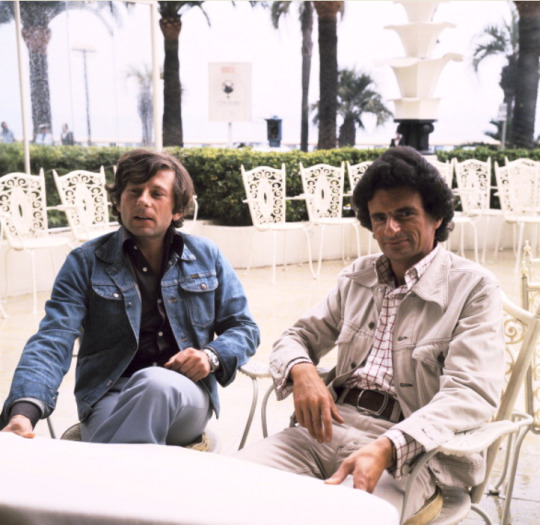
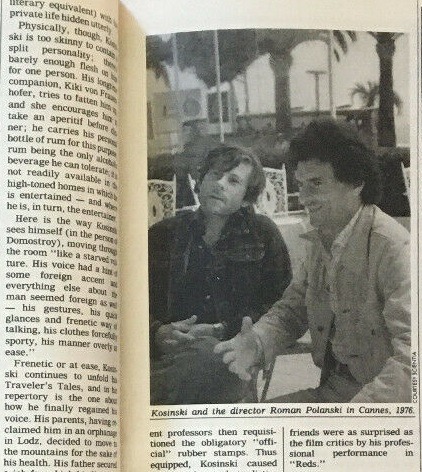
Roman Polanski and Jerzy Kosinski at The Cannes Film Festival 1976
0 notes
Text
A fifth definition of the gene, and which can be credited to the two Frenchmen François Jacob and Jacques Monod, is the gene as a switch and therefore as a unit of development.
"Nature via Nurture: Genes, Experience, and What Makes Us Human" - Matt Ridley
0 notes
Text
Facilitating Migration
A protein called VAPA on the membrane of the endoplasmic reticulum – a cell's largest organelle, and where proteins are produced – is vital for cell movement (motility) as it mediates cytoskeleton activity and regulates adhesion to the substrate at a migrating cell's leading edge
Read the published research article here
Video from work by Hugo Siegfried and colleagues
Université Paris Cité, CNRS, Institut Jacques Monod, Paris, France
Video originally published with a Creative Commons Attribution 4.0 International (CC BY 4.0)
Published in eLife, March 2024
You can also follow BPoD on Instagram, Twitter and Facebook
#science#biomedicine#biology#cells#cell migration#motility#endoplasmic reticulum#cytoskeleton#organelles
12 notes
·
View notes
Text
What l'm interested in is preserving my creativity, my interest in things, and in learning. Nowadays I'm not interested in my ego or in publishing books, all that has passed. I'm interested instead in staying alive, keeping my head as sane as possible, having curiosity, staying interested in things, and continuing to learn, if possible.
In order to do so you have to be more and more strict. The older you get, the greater the risk of your creativity diminishing. Nobel Prize winner Jacques Lucien Monod said that creativity lasts for four years, sometimes just one or two. I like to pretend it can last for-ever, which is impossible, but otherwise you shut down. I've organised my lifestyle in a way that is necessary to continue working on projects, which is what I enjoy doing.
At the end of the day, the moments of utmost pleasure, aside from making love in the desert while smoking joints, consist of being fully concentrated on your thing, concentrated on that first line. Architecture has this fucked up thing where when you draw a line, you don't draw half a line and then the other half. You just draw one.
-Ricardo Bofill
8 notes
·
View notes
Text

Một vài đoạn trích hay trong cuốn Khi hơi thở hóa thinh không:
Tôi không tin vào sự thông thái của trẻ con, cũng như sự thông thái của tuổi già. Có một khoảnh khắc, một điểm lùi, khi tổng hợp của tất cả trải nghiệm thu gom lại đều héo mòn đi bởi những vụn vặt đời thường. Chúng ta không bao giờ thông thái được như khi chúng ta sống trong chính khoảnh khắc này.
Cho dù bạn có hoàn hảo nhưng nhân gian thì không. Bí kíp là bạn biết rằng cuộc đời đã chơi gian, rằng bạn rồi sẽ thua, rằng đôi tay hay phán đoán của bạn sẽ sơ sây và dù vậy vẫn cần phải vật lộn để giành chiến thắng cho bệnh nhân của mình. Bạn không bao giờ có thể đạt được sự hoàn hảo, nhưng bạn có thể tin vào đường tiệm cận của những gì mình không ngừng hướng tới.
"Nếu tôi là một nhà văn, tôi sẽ biên soạn một cuốn sổ sinh tử, kèm theo một dòng ghi chú về những cái chết khác nhau của loài người: ai dạy con người cách chết sẽ đồng thời dạy họ cách sống." (Michel De Montaigne)
Khi nâng đỡ sự khốn cùng của ai đó, có đôi khi ta buộc phải sụp đổ dưới sức nặng của nó.
Con đường phía trước có lẽ sẽ rõ ràng nếu như tôi biết chính xác mình còn bao nhiêu tháng, bao nhiêu năm. Cho tôi ba tháng, tôi dành thời gian cho gia đình. Cho tôi một năm, tôi sẽ viết sách. Cho tôi mười năm, tôi quay trở lại với việc chữa bệnh. Cái sự thực rằng bạn sẽ sống thêm từng ngày từng ngày một chẳng có ý nghĩa gì: Tôi sẽ làm gì với ngày đó đây?
Có lẽ khi không có sự chắc chắn nào cả chúng ta đành mặc định rằng mình sẽ sống rất lâu. Có lẽ đó là cách duy nhất để nhìn về phía trước.
Một phần kỳ quái của bệnh tật đó là khi phải trải qua nó, giá trị của bạn không ngừng thay đổi. Bạn phải tìm ra điều gì là quan trọng với mình và sau đó lại tiếp tục tìm kiếm. Tôi cảm thấy giống như ai đó lấy đi thẻ tín dụng của mình và tôi phải học cách chi tiêu sao cho hợp lý. Bạn có thể quyết định rằng bạn muốn dành thời gian để làm một bác sĩ phẫu thuật, nhưng hai tháng sau có thể bạn sẽ thấy khác. Hai tháng sau, bạn có thể muốn học chơi saxophone hay cống hiến cho nhà thờ. Chết là sự kiện chỉ xảy ra trong chốc lát, nhưng sống cùng bệnh hiểm nghèo lại là cả một quá trình.
...Nhưng ngay cả khi tôi không biết mình muốn gì, tôi cũng đã học được một điều, một điều không hề có trong Hippocrat, Maimonide, hay Osler: Nghĩa vụ của bác sĩ không phải là ngăn chặn cái chết hay đưa bệnh nhân trở lại cuộc sống cũ của họ, mà là ôm lấy bệnh nhân cũng như gia đình họ trong vòng tay, những người mà cuộc sống đang dần tan vỡ và làm việc cho tới khi họ có thể đứng dậy, đối mặt, và hiểu được sự tồn tại của chính bản thân mình.
"Giao ước cổ phân thành nhiều mảnh; con người cuối cùng cũng hiểu được anh ta cô đơn trong cái bao la vô tình của vũ trụ, ở trong đó sự xuất hiện của con người chỉ là ngẫu nhiên." (Jacques Monod)
Kiến thức của con người sẽ không bao giờ chứa đựng chỉ trong một con người. Nó nảy sinh từ mối quan hệ mà chúng ta tạo ra giữa mỗi con người với nhau và với thế giới, và vẫn không bao giờ hoàn chỉnh.
Là một bác sĩ phẫu thuật tập trung vào bệnh nhân trong phòng mổ, đối với tôi có lúc tôi thấy vị trí của kim đồng hồ khá ngẫu nhiên, nhưng tôi chưa từng cho rằng chúng vô nghĩa.
Graham Greene từng nói rằng ta sống cuộc đời ta trong hai mươi năm đầu tiên còn khoảng thời gian còn lại chỉ là sự phản chiếu.
Khi đến một trong những khoảnh khắc mà con phải nói về bản thân mình trong cuộc sống, về việc còn từng là ai, những gì con đã làm và con có ý nghĩa thế nào với cuộc đời, cha nguyện cầu con sẽ không quên rằng, con đã từng lấp đầy tháng ngày của một người đàn ông đang chết bằng một niềm vui chan chứa, một niềm vui cha chưa từng biết đến trong suốt những năm trước đây, một niềm vui không khiến cha khao khát thèm thuồng hơn nữa mà là thõa mãn, bình yên. Tại thời điểm này, ngay lúc này, đó là một điều vĩ đại.
Chúng tôi từng nói đùa với bạn bè rằng bí kíp để cứu sống mối quan hệ đó là một trong hai người bị bệnh gần chêt. Trái lại, chúng tôi tự hiểu rằng thật ra bí kíp để kiểm soát một căn bệnh thập tử nhất sinh chính là yêu thương - để có thể bị tổn thương, để có lòng tử tế, để bao dung và để biết ơn. (Lucy)
17 notes
·
View notes
Photo
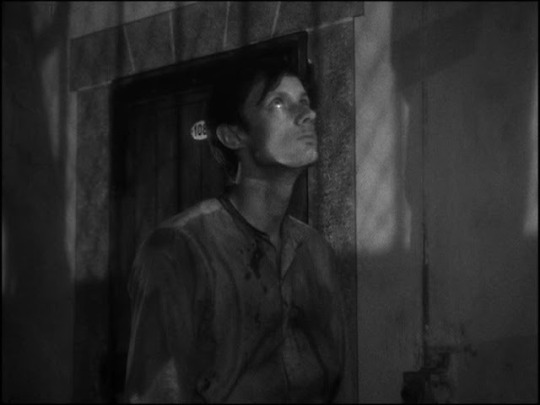
François Leterrier in A Man Escaped (Robert Bresson, 1956)
Cast: François Leterrier, Charles LeClainche, Jacque Ertaud, Maurice Beerbeck, Roland Monod. Screenplay: Robert Bresson, Bbased on a memoir by André Devigny. Cinematography: Léonce-Henri Burel. Production design: Pierre Charbonnier. Film editing: Raymond Lamy.
"I don't laugh," Fontaine (François Leterrier) says. No, he doesn't. In fact, throughout A Man Escaped, Leterrier's expression rarely changes. But we always know the determination, the doubt, the calculation, the suspicion that's going through his head, thanks to Leterrier's use of his eyes.* But as Eisenstein taught us so long ago, montage is responsible for so much of what we feel and witness in movies, and we also have to credit Raymond Lamy's editing as well as Léonce-Henri Burel's cinematography and of course Robert Bresson's direction for making A Man Escaped, based on the memoirs of André Devigny, a member of the French Resistance who was imprisoned by the Nazis, one of the most powerful excursions into a man's soul ever put on film. The word "minimalism" was not so much in use when A Man Escaped was made as it is today, but if ever a film was minimalist in avoiding conventional movie tricks like background music or flashy camerawork, it's this one. Bresson's restraint as a filmmaker serves to keep us in Fontaine's head, blotting out all but his grim determination to escape. When Fontaine murders the prison guard, we don't see it. We barely even hear it. We are watching a blank wall when it happens. But we hold our breaths while it does. Today we think of the prison-break movie genre in terms of films like Stalag 17 (Billy Wilder, 1953), The Great Escape (John Sturges, 1963), Escape From Alcatraz (Don Siegel, 1979), and The Shawshank Redemption (Frank Darabont, 1994), with stars like William Holden, Steve McQueen, Clint Eastwood, Tim Robbins, and Morgan Freeman, with action leavened by comic relief and made more tense by grotesque and sadistic guards, and underscored by mood music. What Bresson gives us is a film with no stars that concentrates largely on the face of the man planning his breakout and whose only music is the occasional underscoring with the "Kyrie" from Mozart's C-minor mass. And it works far better than those more famous and conventional movies.
*Leterrier went on to become a film director and writer. He made only one more film appearance as an actor, in the small role of André Malraux in Alain Resnais's Stavisky... (1974).
5 notes
·
View notes
Photo

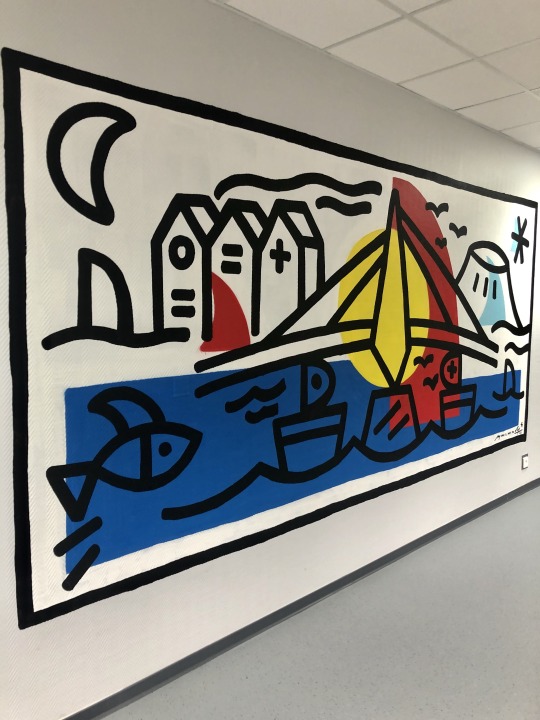
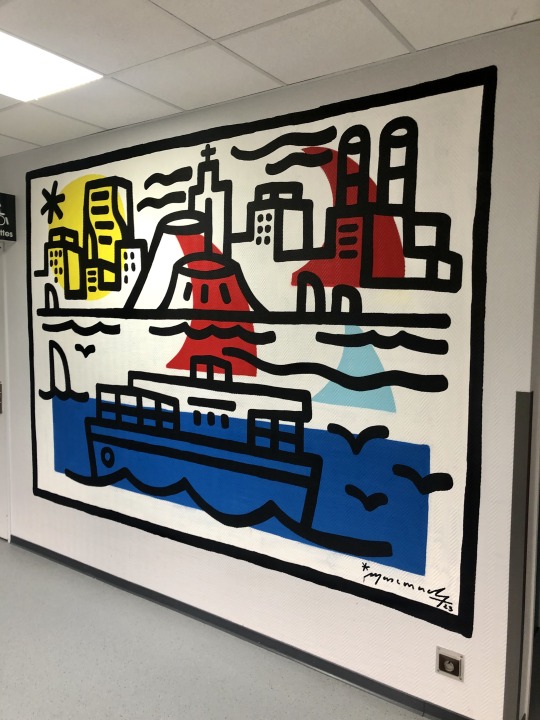
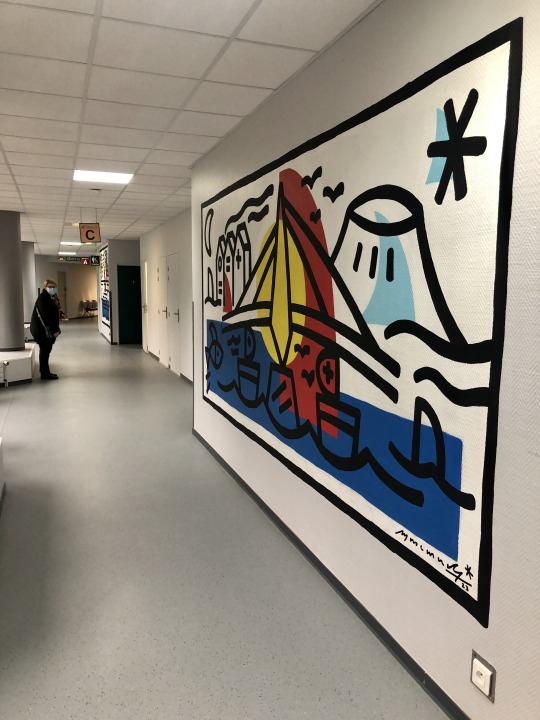
Test Tumblr nouveau (à Hôpital Jacques Monod) https://www.instagram.com/p/CqVUTPJIM89/?igshid=NGJjMDIxMWI=
2 notes
·
View notes
Text
Alessandro Cerboni on LinkedIn: Biocomputation: Moving Beyond Turing with Living Cellular Computers
See on Scoop.it - Bounded Rationality and Beyond
Spesso in discussioni sui computer quantistici ho posto una domanda provocatori : visto che l'80% di un computer quantistico è un sistema marchingegnoso per…
Alessandro Cerboni's insight:
Often in discussions on quantum computers I have asked a provocative question: given that 80% of a quantum computer is an ingenious system for obtaining stable Qbits, why use the digital system? Isn't it better to use the analogue part and think differently from digital logic? In practice why not create compu The idea is extreme and provocative but doable. In other fields they are thinking of not very different paths. It is well known that theoretical computer science and biology have been inspired by each other for decades. While computer science has attempted to imitate the functioning of living systems to develop computer models, including automata, artificial neural networks and evolutionary algorithms, biology has used information technology as a metaphor to explain the functioning of living systems. For example, biologists have used Boolean logic to conceptualize gene regulation since the early 1970s, when Jacques Monod wrote the inspirational statement “… how computers work.” This article argues that information processing is the link between computer science and molecular biology. Information and its processing are at the heart of both fields. In computer science, a model of computation such as finite state machines or Turing machines defines how to generate output from a set of inputs and a set of rules or instructions. https://lnkd.in/dDKJPZTm #quantumcomputer #digital #booleanlogic #analogiccomputing #advancedAI #complexity #emergingAI
0 notes
Text
Fwd: Conference: Roscoff_France.PhenotypicPlasticity.Jun17-21
Begin forwarded message:
> From: [email protected]
> Subject: Conference: Roscoff_France.PhenotypicPlasticity.Jun17-21
> Date: 16 March 2024 at 04:14:19 GMT
> To: [email protected]
>
>
> DEADLINE FOR ABSTRACT SUBMISSION EXTENDED TO MARCH 21 (midnight CET)
>
> Dear colleagues,
>
> We are organizing a Conference Jacques Monod (CJM) entitled:
>
> Life is plastic: How phenotypic plasticity makes us rethink central
> problems in biology.
>
> It will held in Roscoff (Brittany, France), from 17 to 21 June 2024.
>
> CJMs are organized by the CNRS, and include ~100 participants who all
> present their work (oral presentation or poster) to foster scientific
> exchange.
>
> The scientific scope and list of invited speakers is available here:
> https://ift.tt/sMPAyi9
>
> The conference venue is a historical marine biology station in a beautiful
> village in Brittany:
> https://ift.tt/1D0K6Cd
>
> The registration process involves sending an abstract and CV on this
> website:
>
> https://ift.tt/plmL4c6
>
> After the deadline (March 21), selected applicants will be invited
> to finalize their registration (note that conference fees include
> accommodation and meals).
>
> Looking forward to seeing you there !
>
> Luis-Miguel Chevin et Cameron Ghalambor
>
>
>
> Luis-Miguel Chevin
>
> Directeur de recherche CNRS
> Centre d'Ecologie Fonctionnelle et Evolutive
> 1919 route de Mende, 34293 Montpellier Cedex 5, France
> +33 (0)4 67 61 32 11
>
>
> Luis-Miguel CHEVIN
0 notes
Text
2 year postdoc: Mechanosensitivity of intermediate filaments
CNRS institut Jacques Monod
Come and join us as a #postdoc to work on #mechanobiology of intermediate filaments at the single filament level using #microfluidics
See the full job description on jobRxiv: https://jobrxiv.org/job/cnrs-institut-jacques-monod-27778-2-year-postdoc-mechanosensitivity-of-intermediate-filaments/?feed_id=71417
#biophysics #bottom_up_synthetic_biology #cytoskeleton #fluroescent_protein #mechanobiology #microfluidics #single_molecule #ScienceJobs #hiring #research
0 notes
Text
Birthdays 2.9
Beer Birthdays
David C. Kuntz (1877)
Joe Allen (1888)
Brendan Behan; Irish writer (1923)
Five Favorite Birthdays
Frank Frazetta; artist (1928)
Brian Greene; physicist (1963)
Thomas Paine; writer, patriot (1737)
Vince Papale; Philadelphia Eagles WR (1946)
Alberto Vargas; pin-up artist (1896)
Famous Birthdays
George Ade; journalist, humorist (1866)
Alban Berg; composer (1885)
Bill Bergey; Philadelphia Eagles LB (1945)
J.M. Coetzee; writer (1940)
Ronald Colman; actor (1891)
Mia Farrow; actor (1945)
Kathryn Grayson; actor (1922)
William Henry Harrison; 9th U.S. President (1773)
Burkhard Heim; physicist (1925)
Holly Johnson; pop singer (1960)
Bill Justice; animator (1914)
Carole King; songwriter, singer (1942)
Gypsy Rose Lee; entertainer, actor (1914)
Amy Lowell; poet (1874)
Barry Mann; songwriter (1939)
Carmen Miranda; actor (1909)
Jacques Monod; biochemist (1910)
Roger Mudd; television journalist (1928)
Joe Pesci; actor (1943)
Dean Rusk; U.S. Secretary of State (1909)
James Stephens; Irish writer (1882)
Travis Tritt; country singer (1963)
Ernest Tubb; country singer (1914)
Amber Valletta; model (1973)
Bill Veeck; baseball team owner, promoter (1914)
Alice Walker; writer (1944)
Julie Warner; actor (1965)
Zhang Zyi; actor (1979)
0 notes